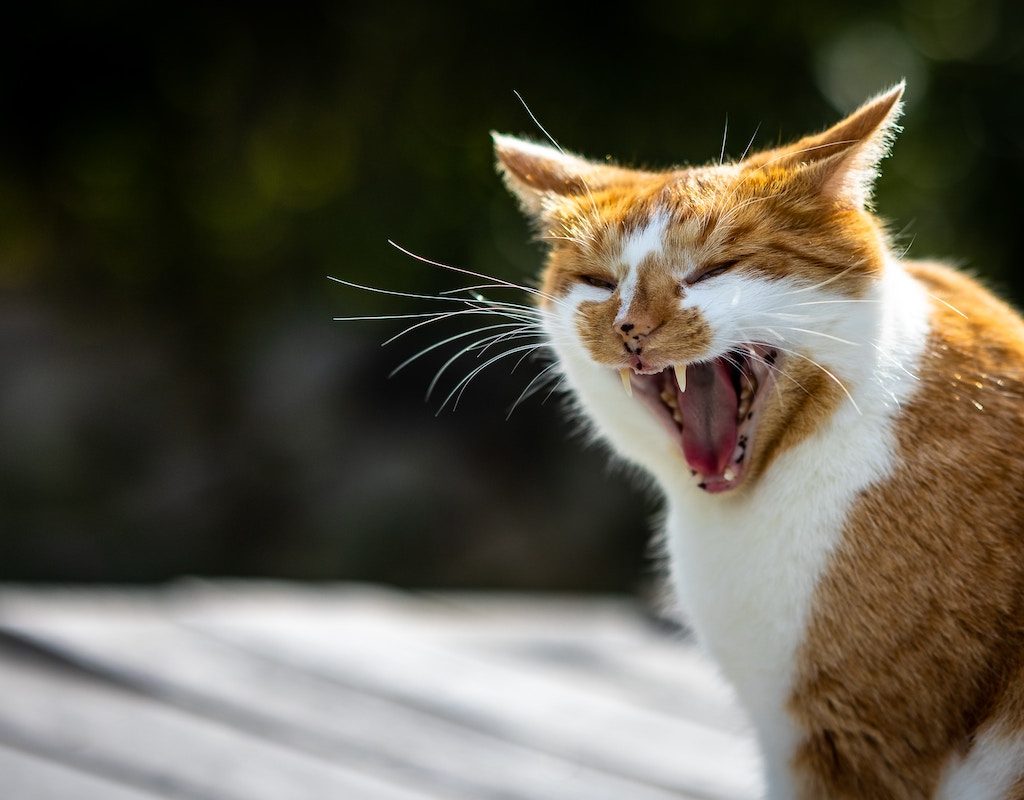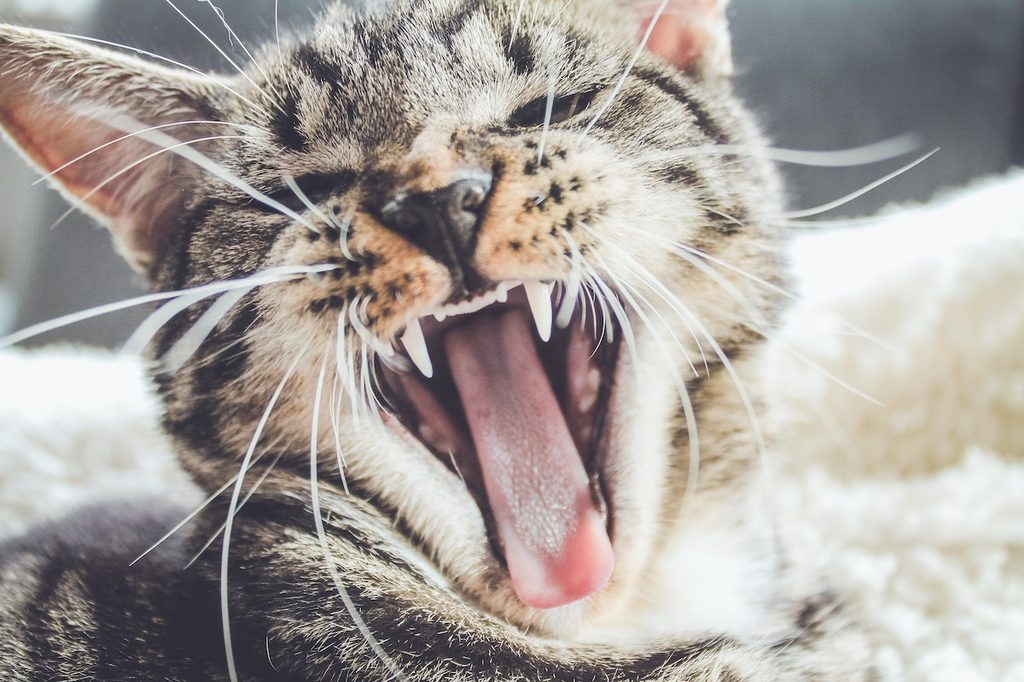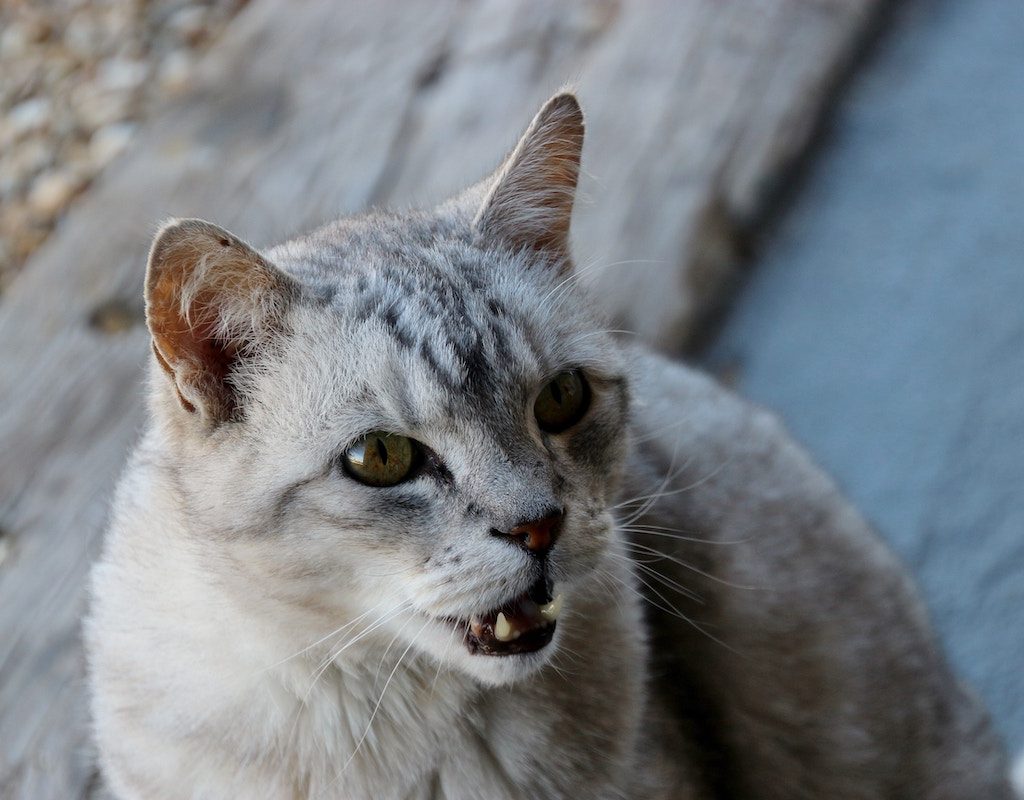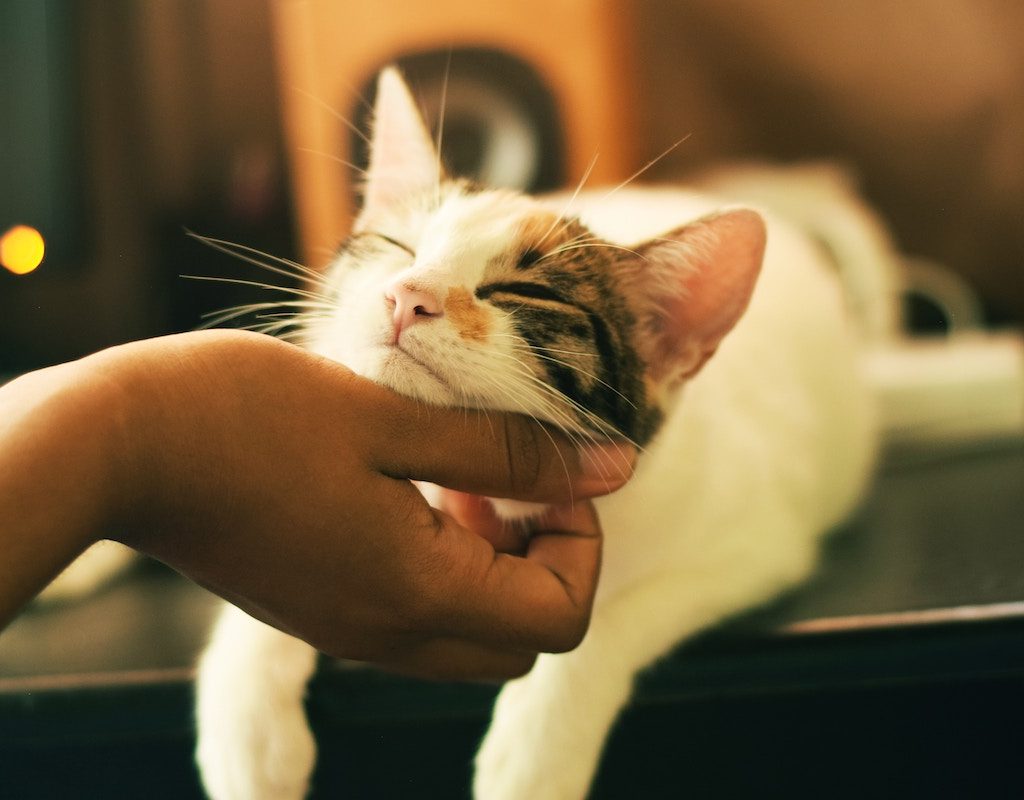
When we think of cat noises, “meows” and “purrs” typically come to mind first. However, despite their reputation as anti-social animals, cats make other sounds. Notably, a cat might hiss — sort of like a snake. A cat’s hiss might stop you in your tracks, just as one from a snake might if you encountered the reptile in the wild. Why do cats hiss? Generally, that stop-in-your-tracks reaction from you is precisely what a feline wants — your attention and perhaps you (or another person or animal) to cease whatever they were doing.
A cat hissing can be a bit scary for a person or another animal, and the sound is sometimes a precursor to a physical action like scratching or pouncing. A cat’s hiss is often a cat’s way of protecting themselves. However, you’ll likely want to avoid making a cat hiss. Knowing the reason a cat hisses is an essential first step.

Why do cats hiss?
Cats hiss for several reasons, and your kitty might give you the snake treatment for a combination of factors. Notably, a cat’s hiss can be unsettling, but the vocalization is a normal reaction, often to a situation a feline sees as abnormal. Evaluate whether your kitty has or may be experiencing one of these common hiss-inducing happenings.
- Something scary. “Scaredy cat” isn’t just a way to describe someone afraid of something you find trivial. Like people, cats can get scared. Perhaps you approached your cat too quickly, or Kitty doesn’t appreciate the bangs of pots and pans as you rummage through a cabinet. If they’re afraid, cats might also hiss at larger animals, including dogs. Sometimes, a cat will run after hissing. Other times, these hisses are a warning to stop before a cat progresses to a physical measure of protection.
- Your cat is annoyed. Sometimes, the cat isn’t scared but somewhat annoyed by a behavior, such as touching underneath the belly. Again, these hisses are warnings to stop.
- Rough play. Some cats enjoy rough play. However, there can come a point when the game is no longer fun. A cat may hiss to tell a person or another animal, “game over” (or at least to scale back the intensity).
- Resource guarding. If a cat feels like a person or another animal is intruding on their personal space, they might hiss or growl. Dogs react similarly, and we people do, too (such as by yelling). Be sure a cat’s food dishes, litter, and any prized toys or resting spots aren’t easily accessed by other pets, and you limit your time with them to cleaning and feeding.
- Pain. Other times, the source of a cat’s hiss isn’t you (or any other humans or pets in the home). Instead, your cat might be in pain.

What to do if a cat is hissing
To some extent, your next steps when a cat hisses will depend on whether the trigger is a human or a pet. However, you’ll want to determine what caused the hissing ASAP, regardless of whether the vocalization was aimed at you or another pet. Further, if a cat begins hissing consistently out of nowhere, your best bet is to call the vet to rule out any medical issues.
How to stop a cat from hissing at other humans
If your cat is hissing at you or someone in the home, stop whatever triggered your feline friend. If possible, avoid engaging in that behavior in the future. For instance, if your cat dislikes belly rubs, show love in other ways.
Did a child cause the hiss? There’s a good bit about introducing a kitty to a new baby. However, once that little one starts walking, the following steps involve training a kid. Children need to be taught about the proper treatment of animals, so use the warning shot as a teachable moment for instructing your child how to engage with a kitty properly. For example, show a child to pet using gentle hands or approach a cat slowly.
Avoid intervening unless another person is in danger or the cat is in so much pain they cannot move. Otherwise, let the kitty cool off.
How to stop a cat from hissing at other animals
If your cat hisses at wildlife around your home, there’s not much you can do. You might attempt to re-arrange a cat’s prized window perches to areas where the animals frequent less to help your kitty avoid stressors.
You can intervene more easily if the cat is hissing at another pet.
- Re-introduce your pets. Your pets may need to be separated for some time as you progressively re-introduce them via scent swaps and interactions on opposite sides of a gate. You might feel like you’re back at square one, but a short time apart might help in the long term.
- Ensure resources are separate. If it was a resource-related hiss, such as over food or a litter box, be sure each animal has their own space. Cats can be territorial over their food and litter.
- Intervene. Avoid letting your animals figure the issue out themselves if they are fighting physically. One or both of the animals can get seriously injured.

Closing thoughts on cats hissing
You may prefer when a cat purrs and meows to hisses. However, a cat’s hiss is a vital tool. Often, the hiss is a means of protection — a kitty hisses when they want you or someone else to stop doing something, like touching them a certain way or making sudden movements. Sometimes, a cat might hiss if they are in pain. For this reason, your best bet is to discuss sudden, chronic hissing that is out of character for a cat with a veterinarian.
When a cat hisses, stop what you’re doing (or instruct another person or animal to stop), and try to avoid these triggers in the future. Unless someone or the cat is in severe pain or danger, avoid intervening to give Kitty time to cool off. Chances are, you two can make up later.




